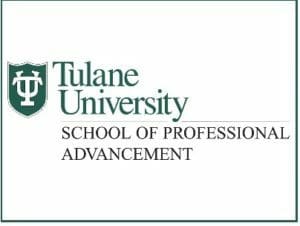Twitter Feed
Cloud Computing Evolves: An Interview with Mats Johansson
Recently, Ericsson Digital released an amazing report on Edge Computing and 5G. In it, they explained how distributed cloud computing is paving the way for the future of network communications. They…
The IoT Nexus: Bosch Connected World 2019 in Berlin
Next week, I will be influencing #LikeABosch as I accept an invitation from the company to attend Bosch ConnectedWorld 2019 (BCW19) in Berlin, Germany. This is one of the world’s largest international…
Survive and Thrive With Digital Transformation
First cloud computing then multi-cloud. How can we get ahead of this digital transformation nightmare? These are the laments heard in conference rooms and board meeting around the world. While…
The “George Jetson” of Today
He grew up in Silicon Valley, landed his first job at Apple Computers, was introduced to Nobel Prize winners by his dad and today, he takes a self-driving car…
MWC19: Where Telecommunications and Cloud Meet
As a cloud solution architect, my passion is learning the details about how cloud computing uniquely supports specific business cases. This curiosity is what drove my excitement when Ericsson invited…
Tulane University SoPA Selects “Architechting Cloud Computing Solutions”
Last week, Packt Publishing announced that “Architecting Cloud Computing Solutions” by Kevin L. Jackson and Scott Goessling was selected for use by the Tulane University School of Professional Advancement, Applied Computing Systems & Technology Program as the textbook for…
5G Wireless Technology Connecting Healthcare
Healthcare is in the middle of massive change. Called digital transformation by many, this term describes the industry’s pursuit of the many promises offered by connected patients, connected caregivers, and…
Maria Lensing: The Network Platform for Healthcare’s Future
As a girl, Maria and her family traveled to Memphis, Tennessee to get cancer treatment for her sick brother. The miracle she observed, as the healthcare providers saved her brother’s…
How “Big Iron” Does “Big Regulation”
According to Verizon, there were over there were over 53,000 security incidents in 2017, with over 2,200 of those identified as confirm data breaches. A Ponemon Institute study also showed…
Mainframe Synergies for Digital Transformation
In July of 2018, Broadcom announced its intentions to acquire CA Technologies. In the press release, Hock Tan, President and Chief Executive Officer of Broadcom, said: “This transaction represents an…
When Congress names a law after you, it’s getting serious. That is where we are now with cloud computing. The Clarifying Lawful Overseas Use of Data Act or CLOUD Act (H.R. 4943) is a United States federal law that amends the Stored Communications Act (SCA) of 1986. This amendment allows federal law enforcement to compel U.S.-based technology companies via warrant or subpoena to provide requested data stored on servers regardless of whether the data are stored in the U.S. or on foreign soil. Industry observers see this as a reaction to the Microsoft vs. United States lawsuit, known on appeal to the U.S. Supreme Court as United States v. Microsoft Corp (Whew!). This data privacy case addressed legal issues associated with US law enforcement efforts to gather electronic data physically stored in a Microsoft datacenter outside of US territory. So why should you care? That “electronic data” was email which is the lifeblood of just about every organization. That, in turn, means that the outcome of this still unsettled case could affect how and where you store corporate email.
While the case was under review by the Supreme Court, Congress passed the CLOUD Act which resolves concerns related to the initial warrant. Although passage of the law made the case moot and vacated an earlier legal decision, an enterprise that may have email stored in overseas locations could find themselves choosing between violating foreign data privacy laws, like the General Data Protection Regulation (GDPR) or violating the US CLOUD Act. This unenviable position is preventable by seriously focusing on your current cloud storage vendor arrangements.
If you’re like many organizations, you have consolidated your cloud storage infrastructure with a single vendor. On the surface, this seems like a logical path, but in reality, that strategy could open you up to some serious risks. The most obvious one is vendor lock-in which could leave you operationally dependent on that single provider. It could also make it impossible for you to change providers should the business relationship fail for some reason. A second issue is driven by a need for data immutability. Data pedigree must be beyond reproach, and an essential requirement for protecting this pedigree is data immutability. This term describes a data property of being unchanging or unable to be changed over time. Immutability is especially important in law enforcement where prosecutors rely on data to prove their case. If you’re operating within the United States, the CLOUD Act adds additional uncertainty to any risk calculation. Enterprises must take a look at classifying their data based on applicable data sovereignty laws which describe the notion that information stored in binary digital form is subject to the laws of the country in which it is located.
An effective mitigation strategy for these risks could be establishing a secondary cloud storage vendor. This move would:
- Eliminate the possibility of cloud storage vendor lock-in;
- Provide data portability options should the business relationship fail for any reason;
- Help establish auditable procedures for the management of any data subject to US data sovereignty laws; and
- Establish and maintain data immutability.
If you need to take action toward mitigating your organization’s cloud storage risks, Wasabi could be a good option. Their “Hot Storage” solution is deployed in fully secure, redundant, and SOC-2, ISO 27001, and PCI-DSS certified data centers. The company’s primary production data centers are in Virginia and Oregon with additional European Union data centers coming available later this year. Wasabi is also one of the few cloud service providers capable of meeting data immutability standards which include:
- Ensuring that none of the provider’s employees can change application code on a production system without first undergoing thorough review and testing
- Confirmation that all data centers contain appropriate physical security using things like biometric access control and man-traps.
- Data guarantees at least 11 nines in durability; and
- Every data object is read every 90 days to detect and automatically correct any random errors.
Cloud Computing
- CPUcoin Expands CPU/GPU Power Sharing with Cudo Ventures Enterprise Network Partnership
- CPUcoin Expands CPU/GPU Power Sharing with Cudo Ventures Enterprise Network Partnership
- Route1 Announces Q2 2019 Financial Results
- CPUcoin Expands CPU/GPU Power Sharing with Cudo Ventures Enterprise Network Partnership
- ChannelAdvisor to Present at the D.A. Davidson 18th Annual Technology Conference
Cybersecurity
- Route1 Announces Q2 2019 Financial Results
- FIRST US BANCSHARES, INC. DECLARES CASH DIVIDEND
- Business Continuity Management Planning Solution Market is Expected to Grow ~ US$ 1.6 Bn by the end of 2029 - PMR
- Atos delivers Quantum-Learning-as-a-Service to Xofia to enable artificial intelligence solutions
- New Ares IoT Botnet discovered on Android OS based Set-Top Boxes










